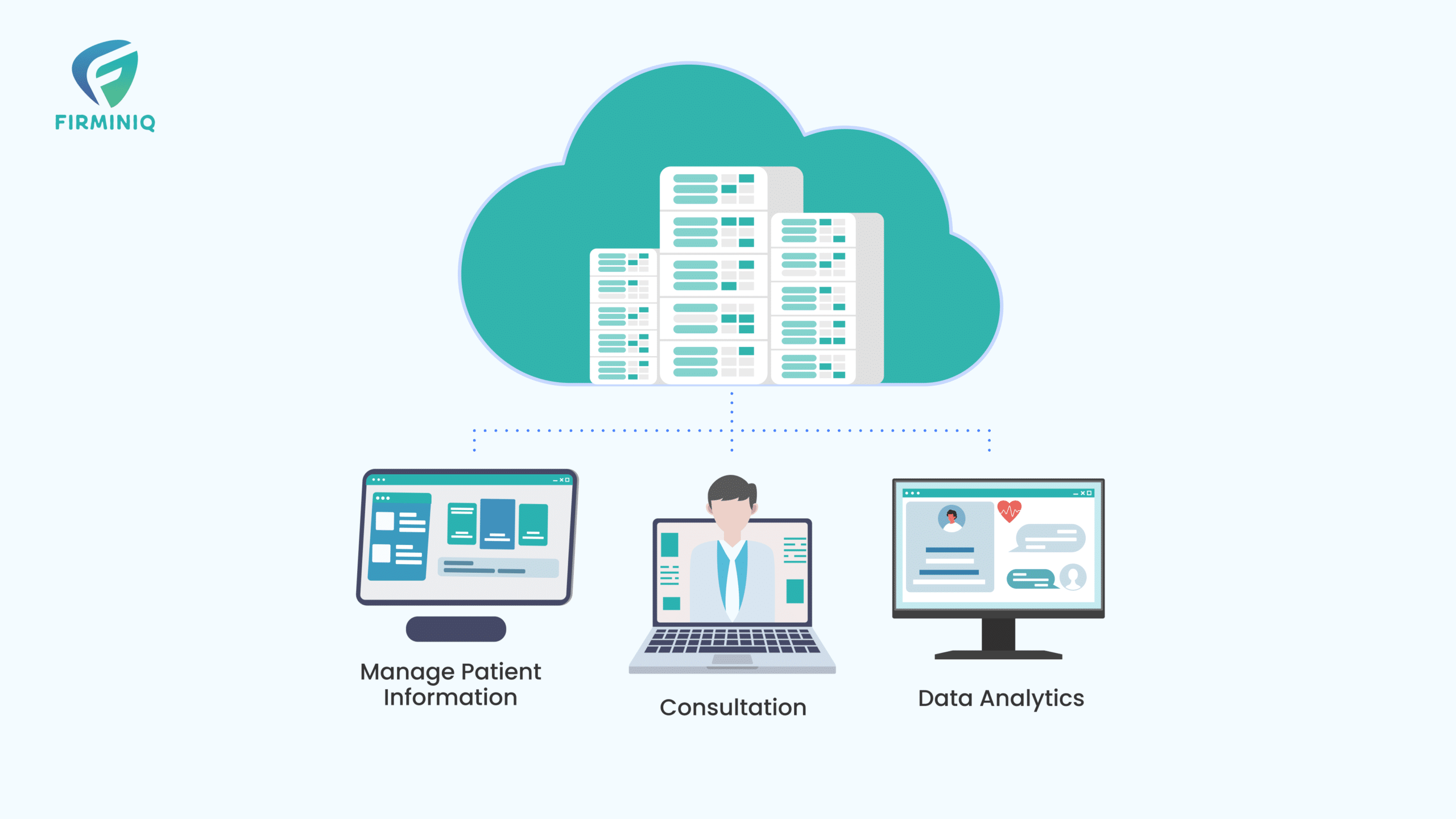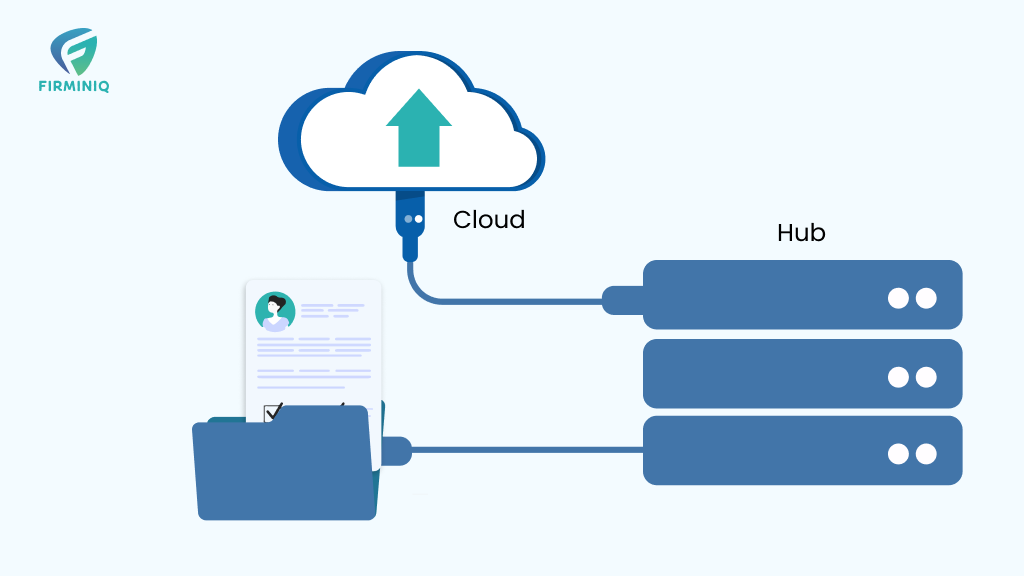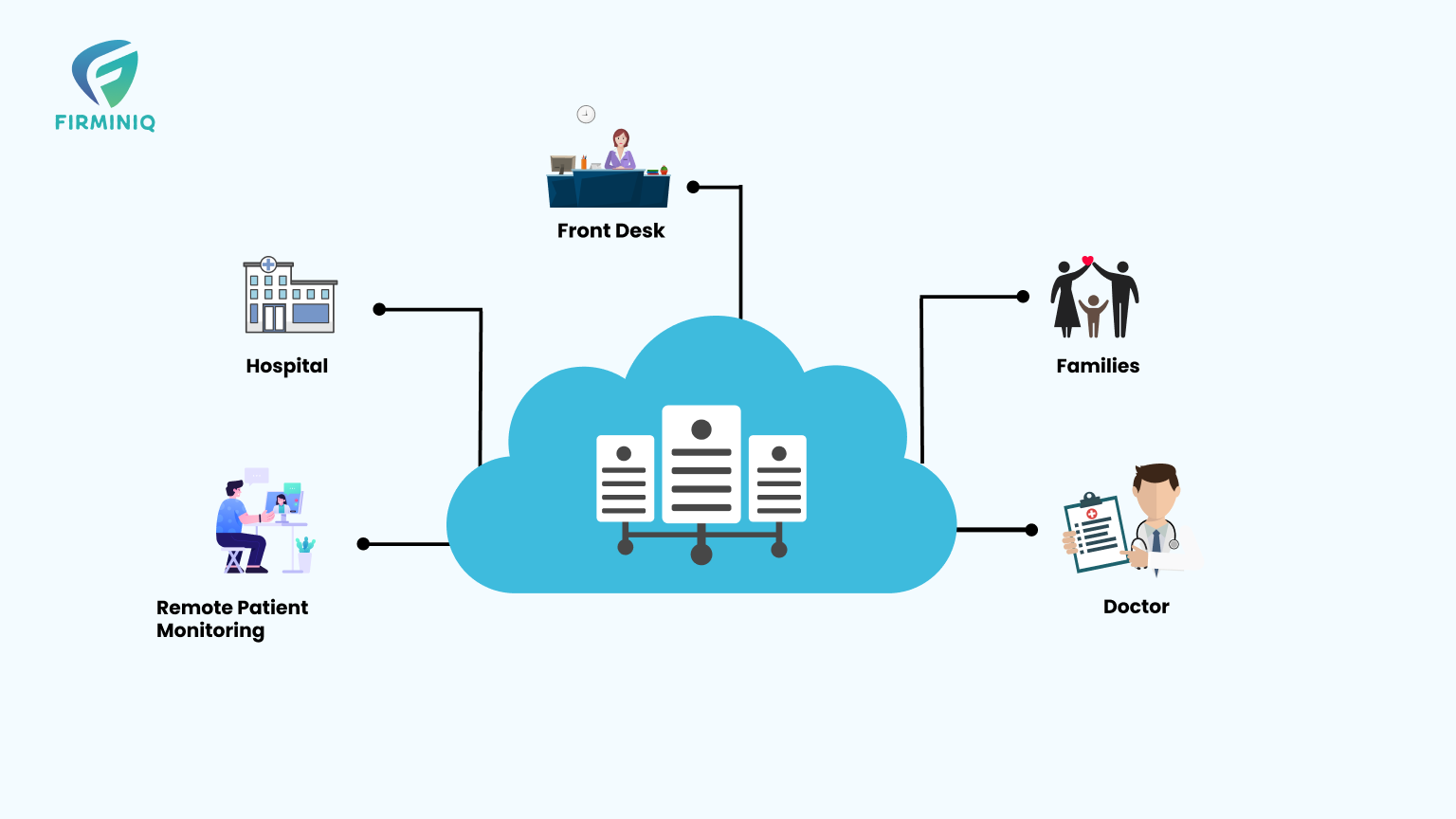With rapid technological progress, healthcare providers must innovate to remain competitive. Cloud computing emerges as the ideal technology meeting these criteria, becoming indispensable for any healthcare organization in today’s market, especially after the pandemic.
The importance of cloud in healthcare is underscored by a recent McKinsey article that shows that cloud capabilities have the potential to generate value of $100 billion to $170 billion in 2030 for healthcare companies.
As we move further into the post-pandemic era, healthcare organizations are acknowledging the value of cloud computing and embracing its full potential. The integration of cloud-based solutions into healthcare workflows not only ensures business continuity but also sets the stage for groundbreaking advancements in patient care. In this blog post, we will delve into the evolving role of cloud in healthcare, exploring the myriad of use cases and latest trends that shape the future of healthcare.
Applications of Cloud Computing in Healthcare
Cloud in healthcare continues to transform the industry while offering an array of advantages to streamline processes, enhance patient care, foster innovation, and more. Let us dig deeper into the key applications of cloud computing in healthcare:
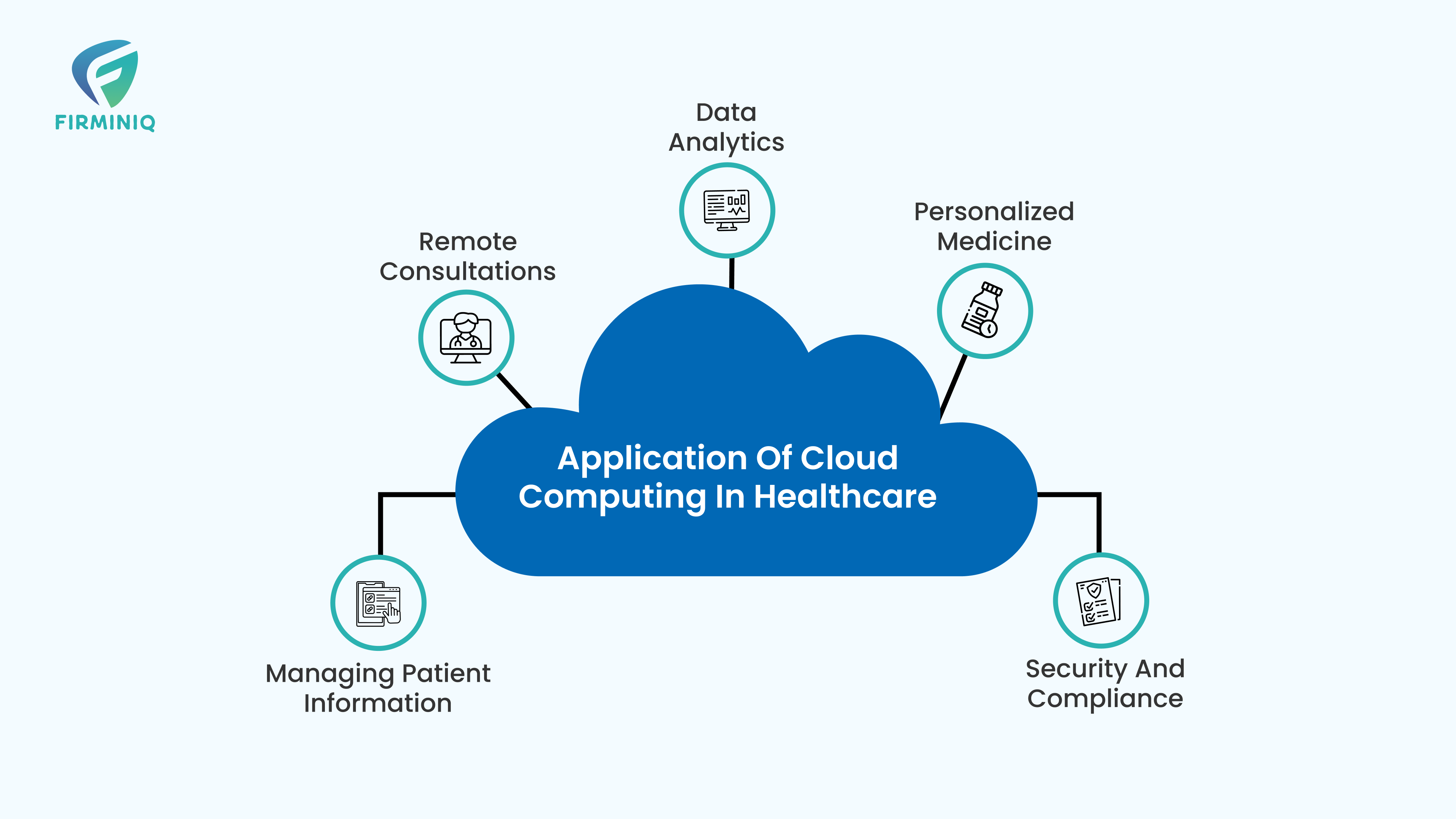
1. Managing Patient Information
One of the key offerings of cloud computing technology is the ability to secure patient data among medical systems with ease. Patient data stored in the cloud can be accessed securely from anywhere at any time by professionals. This accessibility ensures that the right information is available when needed, leading to quicker decision-making and improved patient care.
2. Remote Consultations
Cloud computing allows for real-time video, audio, and chat communication between patients and healthcare professionals. This immediacy is crucial in emergency situations and for timely medical advice, diagnosis, and treatment planning. This way the healthcare professionals offer services remotely, while improving access to care, especially for the patients in the remote areas.
3. Data Analytics
Cloud platforms open an array of opportunities with the power of data analytics in healthcare. It helps collect and analyze massive datasets while offering the computational muscle needed to process these vast datasets efficiently. From predictive analytics to assistance in forecasting disease and optimizing resource allocation, the cloud provides the most valuable insights.
Leveraging intelligent algorithms to analyze complex medical data from patients could significantly impact healthcare, addressing the issue of misdiagnosis, which is a major concern in the healthcare industry.
4. Personalized Medicine
The cloud plays a pivotal role in advancing personalized medicine within healthcare as it allows healthcare providers to store vast amounts of patient data securely in a centralized manner. It includes the genetic information, medical history and other details as well. This tailored approach helps healthcare experts to offer more effective treatments and better patient outcomes.
5. Security and Compliance
Cloud service providers ensure investing in robust security measures while ensuring that the patient data is secure, encrypted, and protected against any kind of breaches. Cloud platforms often offer compliance features specific to the healthcare industry, making it easier for healthcare providers to adhere to regulatory requirements related to data storage and processing.
Emerging Trends in Cloud Shaping the Healthcare Industry
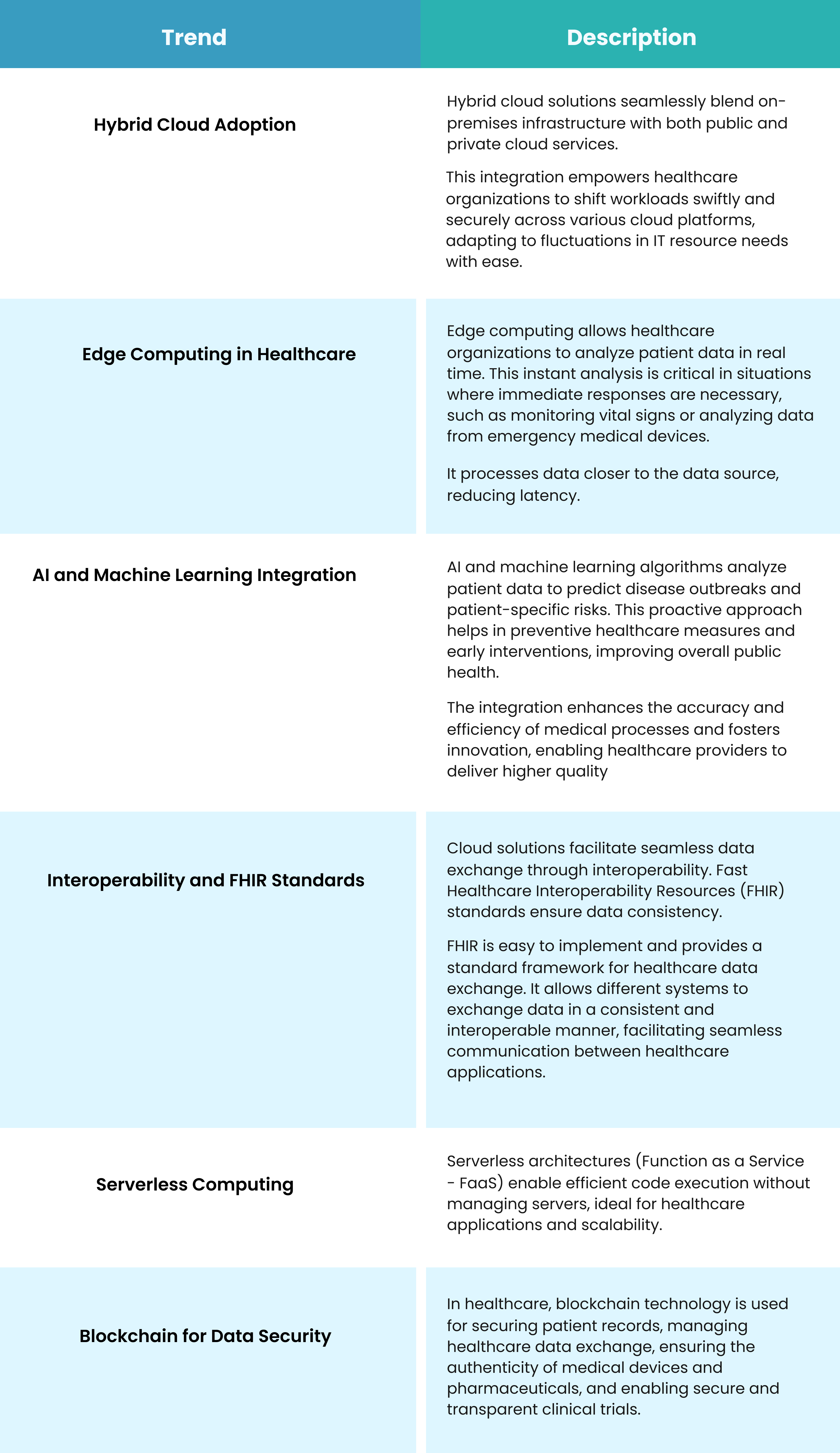
Concluding Thoughts
In conclusion, cloud computing is driving changes while enhancing the efficiency and accuracy in healthcare processes. Embracing cloud computing now allows healthcare providers to unlock its myriad benefits and advance patient care and operational efficiency. Cloud-based data analytics empower healthcare organizations to derive meaningful insights from their data, leading to improved patient outcomes, better resource allocation, and advancements in medical research.
The rapid adoption rate, with a significant percentage of healthcare organizations already utilizing cloud computing technology and more planning to do so, underscores its vital role in the industry’s future. If you are looking for more details on Cloud and DevOps services, reach out to us.


